The Mamas & the Papas’ ‘Creeque Alley’: Behind the Song
by Jeff Tamarkin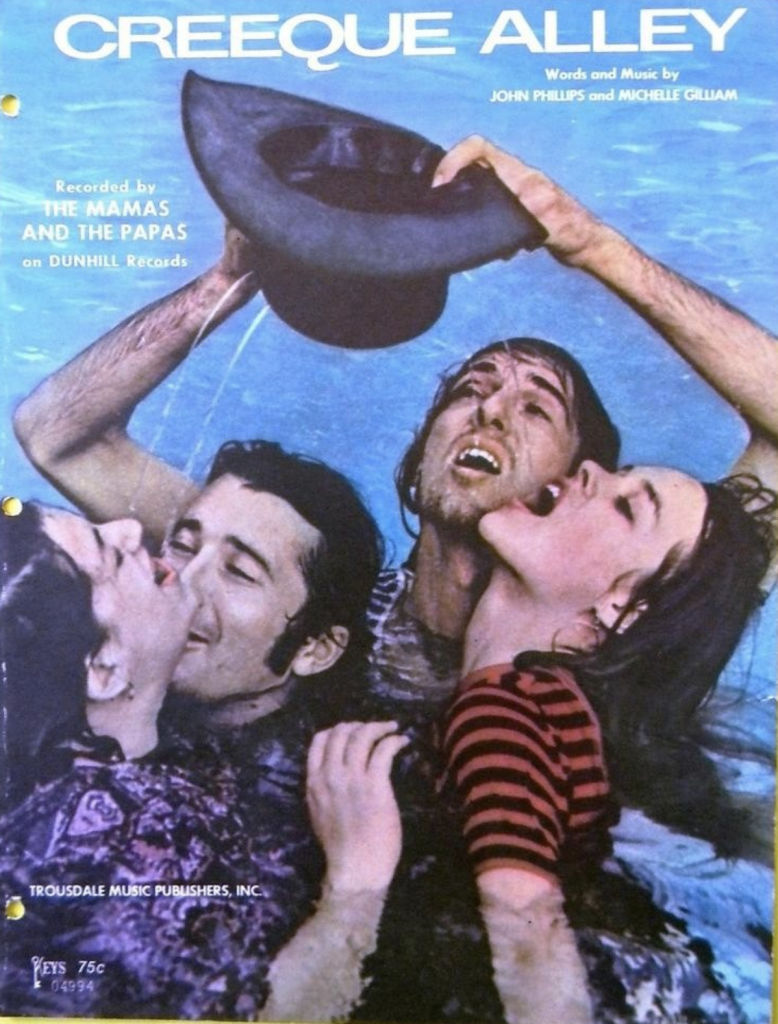 Numerous autobiographical songs have been written since the dawn of rock, but few have told the story of a band’s formation as vividly and colorfully as The Mamas and the Papas’ “Creeque Alley.” Released as a single in late April 1967, it climbed to #5 on the Billboard Hot 100; it also appeared on the quartet’s third album, Deliver, which itself rose to #2.
Numerous autobiographical songs have been written since the dawn of rock, but few have told the story of a band’s formation as vividly and colorfully as The Mamas and the Papas’ “Creeque Alley.” Released as a single in late April 1967, it climbed to #5 on the Billboard Hot 100; it also appeared on the quartet’s third album, Deliver, which itself rose to #2.
The song, credited to the group’s husband-and-wife co-founders John and Michelle Phillips, chronicles the events leading up to the 1965 creation of the Mamas and the Papas, which also included Cass Elliot and Denny Doherty. The lyrics are stocked with names and places, some of which may have been (and still are) unfamiliar to fans of the group. We’ll break it down.
First, there’s the song’s title. Creeque (pronounced creaky) Alley is a real place, one of a series of alleys (actually named Creeque’s Alley and owned by the Creeque family) on the docks on St. Thomas in the Virgin Islands. The soon-to-be members of the Mamas and the Papas spent time there shortly before changing their musical direction and taking on their new name. There they were still performing folk music, at a club called Sparky’s Waterfront Saloon, and basically trying to make ends meet and figure out their futures.
Listen to them sing “Creeque Alley” on The Ed Sullivan Show on June 11, 1967
The song’s story line only makes passing reference to the Mamas and the Papas’ time on the island though, and never mentions Creeque Alley by name. It starts in the years leading up to the seemingly preordained coalescence of the four singers.
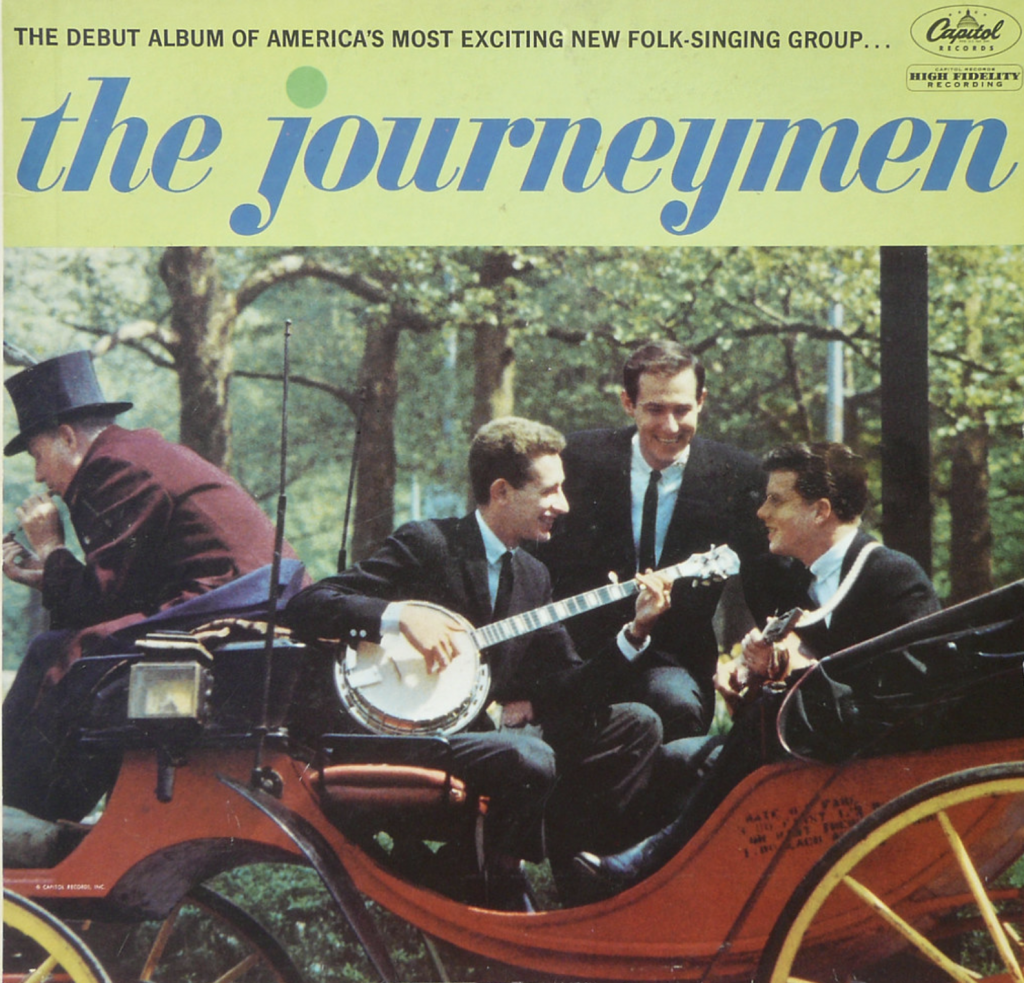 The first line, “John and Mitchy were getting’ kind of itchy just to leave the folk music behind,” refers to John and Michelle’s activities as folk singers in the early ’60s. John Phillips, then 26, had been singing with a folk group called the Journeymen when he met 17-year-old Michelle Gilliam during a tour stop in San Francisco. They fell in love and, after John divorced his first wife, married on Dec. 31, 1962, moving to New York where they began writing songs together while Michelle did modeling work to earn some cash. By late 1964, with the rock scene exploding, John and Michelle had become, like many others, “itchy” to move away from folk. It wasn’t all that easy, they quickly discovered, and the couple, along with Doherty formed the New Journeymen in the meantime. (Trivia note: Early New Journeymen member Marshall Brickman, who was replaced by Doherty, went on to co-write some of Woody Allen’s best-known films and won an Oscar for Annie Hall.)
The first line, “John and Mitchy were getting’ kind of itchy just to leave the folk music behind,” refers to John and Michelle’s activities as folk singers in the early ’60s. John Phillips, then 26, had been singing with a folk group called the Journeymen when he met 17-year-old Michelle Gilliam during a tour stop in San Francisco. They fell in love and, after John divorced his first wife, married on Dec. 31, 1962, moving to New York where they began writing songs together while Michelle did modeling work to earn some cash. By late 1964, with the rock scene exploding, John and Michelle had become, like many others, “itchy” to move away from folk. It wasn’t all that easy, they quickly discovered, and the couple, along with Doherty formed the New Journeymen in the meantime. (Trivia note: Early New Journeymen member Marshall Brickman, who was replaced by Doherty, went on to co-write some of Woody Allen’s best-known films and won an Oscar for Annie Hall.)
Watch a clip of the New Journeymen, featuring John and Michelle Phillips and Denny Doherty
In the meantime, other similarly inclined folk artists were coming into one another’s orbits. First, there were “Zal and Denny, workin’ for a penny, tryin’ to get a fish on a line,” which refers to Zal Yanovsky and Dennis (known as Denny) Doherty. Both Canadians, they’d been working together in a folk trio called the Halifax Three in their home country. “In a coffeehouse Sebastian sat” brings into the picture John Sebastian, the New York City-born singer-songwriter who at the time was part of the Even Dozen Jug Band and would soon form one of the most beloved American rock bands of the era. And then there were “McGuinn and McGuire, just a gettin’ higher in L.A., you know where that’s at.” McGuinn, of course, was Jim (later Roger) McGuinn, whose group the Byrds would vault to the top of the charts with their cover of Bob Dylan’s “Mr. Tambourine Man” in the late spring of ’65, while McGuire was Barry, whose rendition of P.F. Sloan’s protest song “Eve of Destruction” struck a nerve that summer, also catapulting to the #1 position.
Listen to the Halifax Three with Denny Doherty
The first verse leaves off with a name-drop of the fourth member of the Mamas and the Papas: “And no one’s gettin’ fat except Mama Cass.” Cass Elliot (born Ellen Naomi Cohen), originally from Baltimore, also had a background in folk music when she came to the attention of the other folkies in the song. She’d sung in a trio called the Big 3 with Tim Rose and Cass’ husband, James Hendricks (not to be confused with New York scene regular Jimi Hendrix), but like the others she saw the proverbial writing on the wall and wanted to expand her range of music. The “gettin’ fat” remark has a double meaning, however: not only was Elliot physically large but she was the only future M&P member who was making a decent living with her music, singing jazz in the Washington, D.C., area.
The second verse begins with a couple of mutual compliments: “Zally said, ‘Denny, you know there aren’t many who can sing a song the way that you do, let’s go south.’ Denny said, ‘Zally, golly, don’t you think that I wish I could play guitar like you?’” And so they headed south from Canada, soon finding themselves at a popular club in New York’s Greenwich Village: “Zal, Denny and Sebastian sat (at the Night Owl), and after every number they’d pass the hat.” (More trivia: The Night Owl would become the home base of the Lovin’ Spoonful, Sebastian and Yanovsky’s group, and much later on would be the site of the famed New York record store Bleecker Bob’s.)
Related: Our interview with John Sebastian
Meanwhile, McGuinn and McGuire were “still a-gettin’ higher in L.A.” and Mama Cass was still “gettin’ fat,” but no one had yet found their destiny.
Verse three gives us some more background on Cass’ run-up to joining the group. She was planning to attend college at Swarthmore, the song says, but instead hitchhiked to New York to see if she could make it in the music world. (Trivia note: Cass never planned to go to Swarthmore—she wanted to attend Goucher College near her hometown of Baltimore. But John Phillips needed a rhyme so he used sophomore and Swarthmore.) Upon her arrival in NYC, she met Denny Doherty and fell in love with him.
“Called John and Zal and that was the Mugwumps” adds the next piece to the puzzle: The Mugwumps were a folk quintet formed in 1964 featuring Elliot, Doherty, Sebastian, Yanovsky and Hendricks. (The John here refers to Sebastian, not Phillips.)
The Mugwumps recorded enough material to be compiled into an album in 1967, which did not feature Sebastian, but the group was short-lived as its members were also “itchy to leave the folk music behind.” The next verse ties up the loose ends and takes us to the point where everyone is on the verge of fame: “Sebastian and Zal formed the Spoonful; Michelle, John and Denny getting’ very tuneful; McGuinn and McGuire just a-catchin’ fire in L.A., you know where that’s at.”
Listen to the Mugwumps sing “You Can’t Judge a Book by the Cover”
And there you have it: the various figures peel away from folk and move into what was then called folk-rock: Sebastian and Yanovsky teamed with bassist Steve Boone and drummer Joe Butler in the Lovin’ Spoonful; the Phillipses, Cass Elliot and Denny Doherty became the Mamas and the Papas; McGuinn led the Byrds for several years; and McGuire had a chart-topping hit as a solo artist. In fact, says a previous verse, “McGuinn and McGuire couldn’t get no higher and that’s what they were aimin’ at.”)
“And everybody’s gettin’ fat except Mama Cass,” goes the final line in that verse, inferring that success had arrived. But there’s some unfinished business, that matter of the time spent at Creeque Alley.
 The last chorus/verse informs us that it wasn’t overnight success for the Mamas and the Papas by any means. It’s here, at the end of the song, that the scene shifts to the Virgin Islands. The singers, still called the New Journeymen and minus Cass at first (as the song said, they “knew she’d come eventually”) are cash-poor and borrowing on their American Express cards. They’re “broke, busted, disgusted,” but thanks to some help from a fellow named Hugh Duffy, who owned a boarding house in Creeque’s Alley, the four young singers who would soon be known worldwide were able to start thinking about their future: “Duffy’s good vibrations and our imaginations can’t go on indefinitely,” they sing toward the end of “Creeque Alley.” So the four returned briefly to New York, then all headed out to Southern California to see if they could catch a break.
The last chorus/verse informs us that it wasn’t overnight success for the Mamas and the Papas by any means. It’s here, at the end of the song, that the scene shifts to the Virgin Islands. The singers, still called the New Journeymen and minus Cass at first (as the song said, they “knew she’d come eventually”) are cash-poor and borrowing on their American Express cards. They’re “broke, busted, disgusted,” but thanks to some help from a fellow named Hugh Duffy, who owned a boarding house in Creeque’s Alley, the four young singers who would soon be known worldwide were able to start thinking about their future: “Duffy’s good vibrations and our imaginations can’t go on indefinitely,” they sing toward the end of “Creeque Alley.” So the four returned briefly to New York, then all headed out to Southern California to see if they could catch a break.
“And California Dreaming is becoming a reality” is the final line of the song. We all know what that one means.
Listen to the studio version of “Creeque Alley”
The Mamas & the Papas were the subject of a 2023 book, All the Leaves Are Brown.

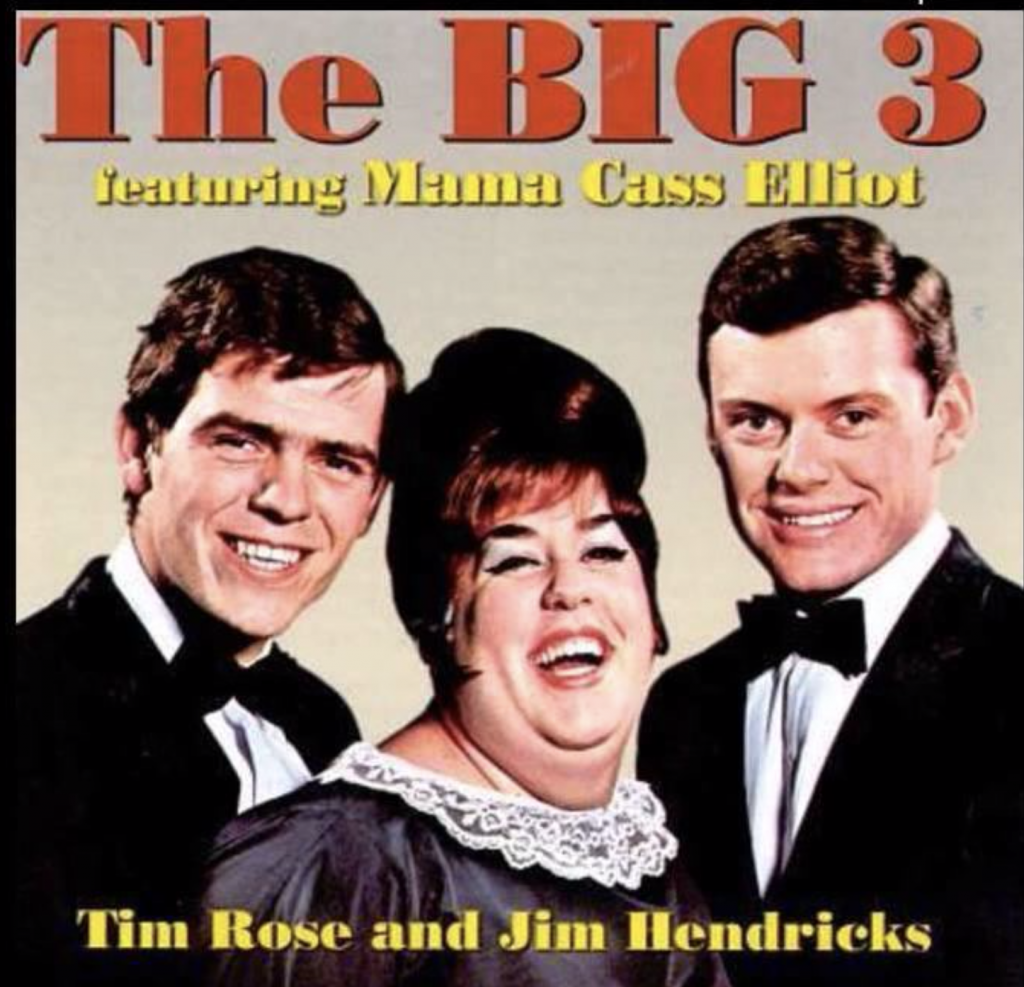

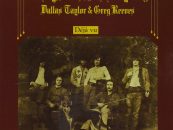

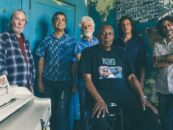

8 Comments so far
Jump into a conversationThat’s a great write-up. And I never knew when I was in Bleecker Bob’s 30-something years ago that I was standing in the Night Owl. Nuggets like that are why I read Best Classic Bands.
Jeff,
Thanks for a great article. For such a talented group, I feel they went basically unheralded, well-known but little credit for some amazing harmonies. I’m glad you’ve given them a little piece of the spotlight.
Jim
I grew up on St. Thomas and my father’s best friend was a West Indian descendant of Henry Creque who found the treasure on “Treasure” island (actually Norman) that is one of only two legitimate X marks the spot pirate treasures ever found. He bought half of downtown St. Thomas and Creque Alley is named after him. The Mammas and Papas didn’t remember the spelling correctly.
Great Song. The Ms and Ps songs are timeless and sound as great now as they did when I first heard their songs while in college in the 1960s.
Great article, but with one omission. Speaking of double meanings, the line “Cass can’t make it, she says we’ll have to fake it / We knew she’d come eventually”
is also an oblique reference to Mama Cass’s first marriage in 1963 to Jim Hendricks, her fellow group member in The Big 3 and The Mugwumps. It was an arrangement to help him avoid being drafted during the Vietnam War, the marriage never being consummated. Her later relationship with Chuck Day being a sexual one, she gave birth to a daughter Owen Vanessa on April 26, 1967.
Fascinating. Thanks for that info.
Dig out “Night Owl Blues” from the Spoonful’s first LP and see them in your mind’s eye at 2am, back in 1965.